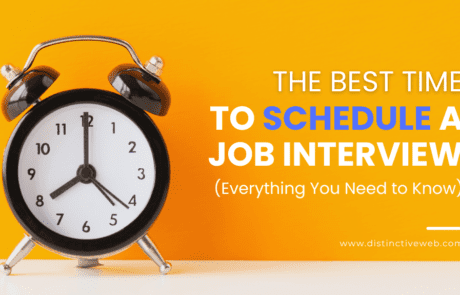
Landing your dream job can be challenging, and among the greatest of challenges for most job seekers is preparing for and acing job interviews. But with the advances in artificial intelligence (AI), it has become much easier to get your foot in the door.
LinkedIn, the world’s largest professional network, has always been at the forefront of revolutionizing job search and networking. With its latest feature, LinkedIn is now offering job seekers the ability to access common interview questions, practice their responses, and receive AI-generated feedback to fine-tune their answers.
LinkedIn’s AI-powered feature, “Interview Prep,” is a compelling tool for job seekers looking to enhance their interview performance. This innovative feature is designed to help you practice for real-life job interviews and provide valuable feedback on your answers.
Accessing LinkedIn’s Interview Prep Feature
Accessing LinkedIn’s Interview Prep feature is straightforward. First, log in to your LinkedIn account and navigate to the “Jobs” tab.
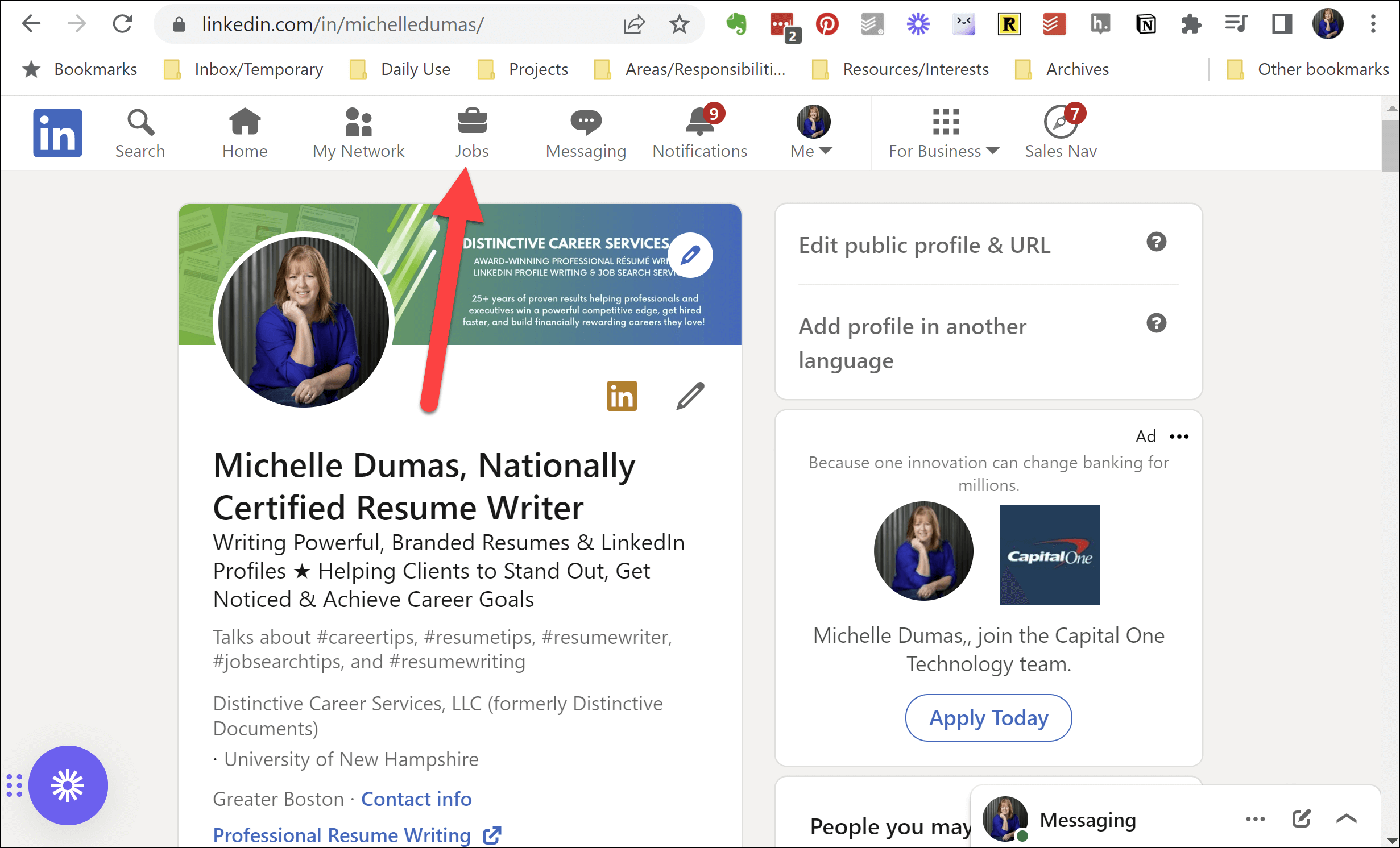
From there, select “Interview Prep,” which you can find under the dropdown menu on your mobile device and in the left-hand sidebar on your computer. This will lead you to the interview practice dashboard, where you can begin setting up your personalized practice session.
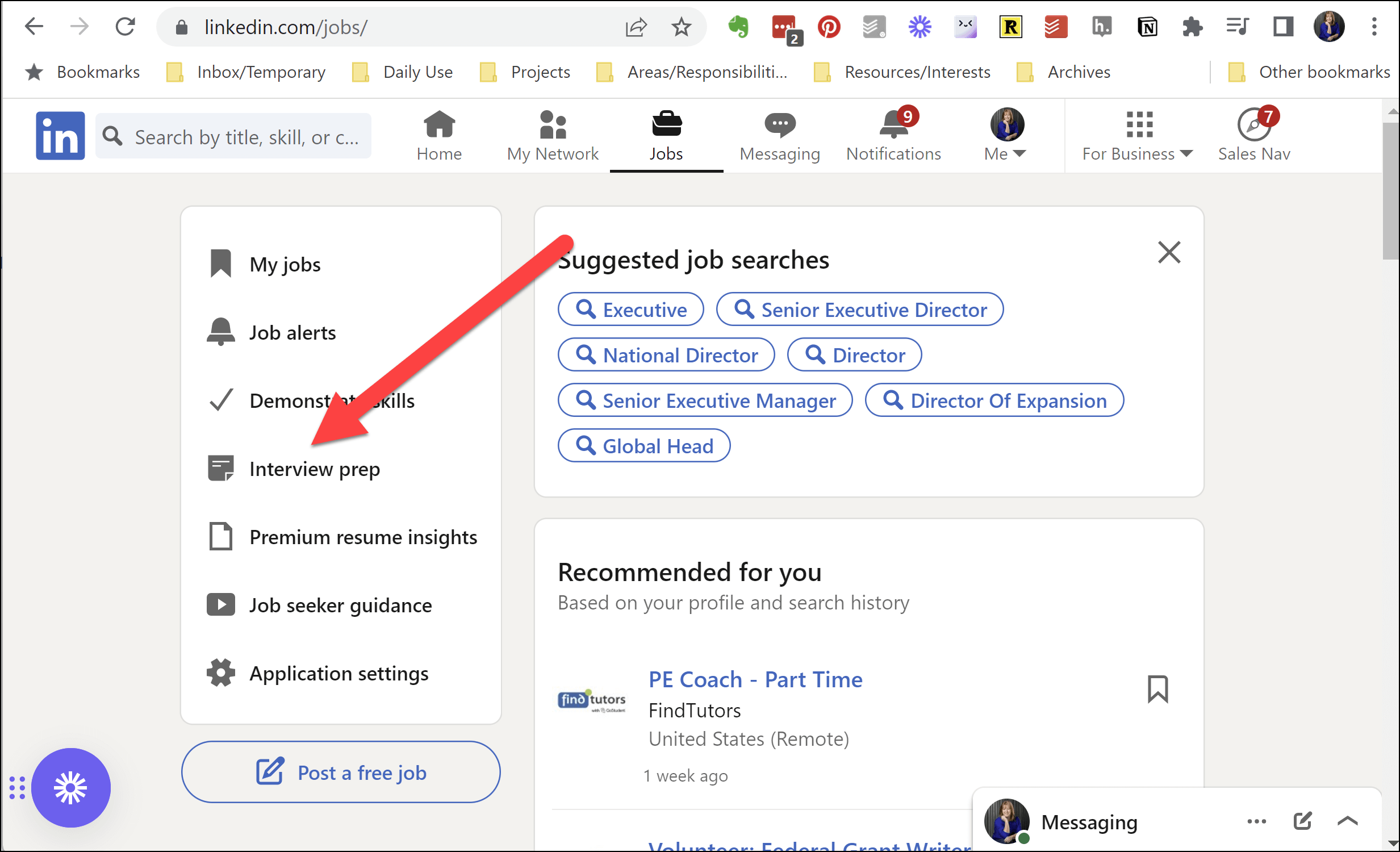
Customizing Your LinkedIn Interview Prep Session
Once you access the LinkedIn Interview Prep feature, it’s time to customize your practice session.
LinkedIn’s interview practice feature allows you to customize your practice sessions based on your needs and the job you are applying for.
To start, you can choose from a list of common interview questions provided by LinkedIn, which cover general topics such as “Tell me about yourself” or “What are your strengths and weaknesses?”
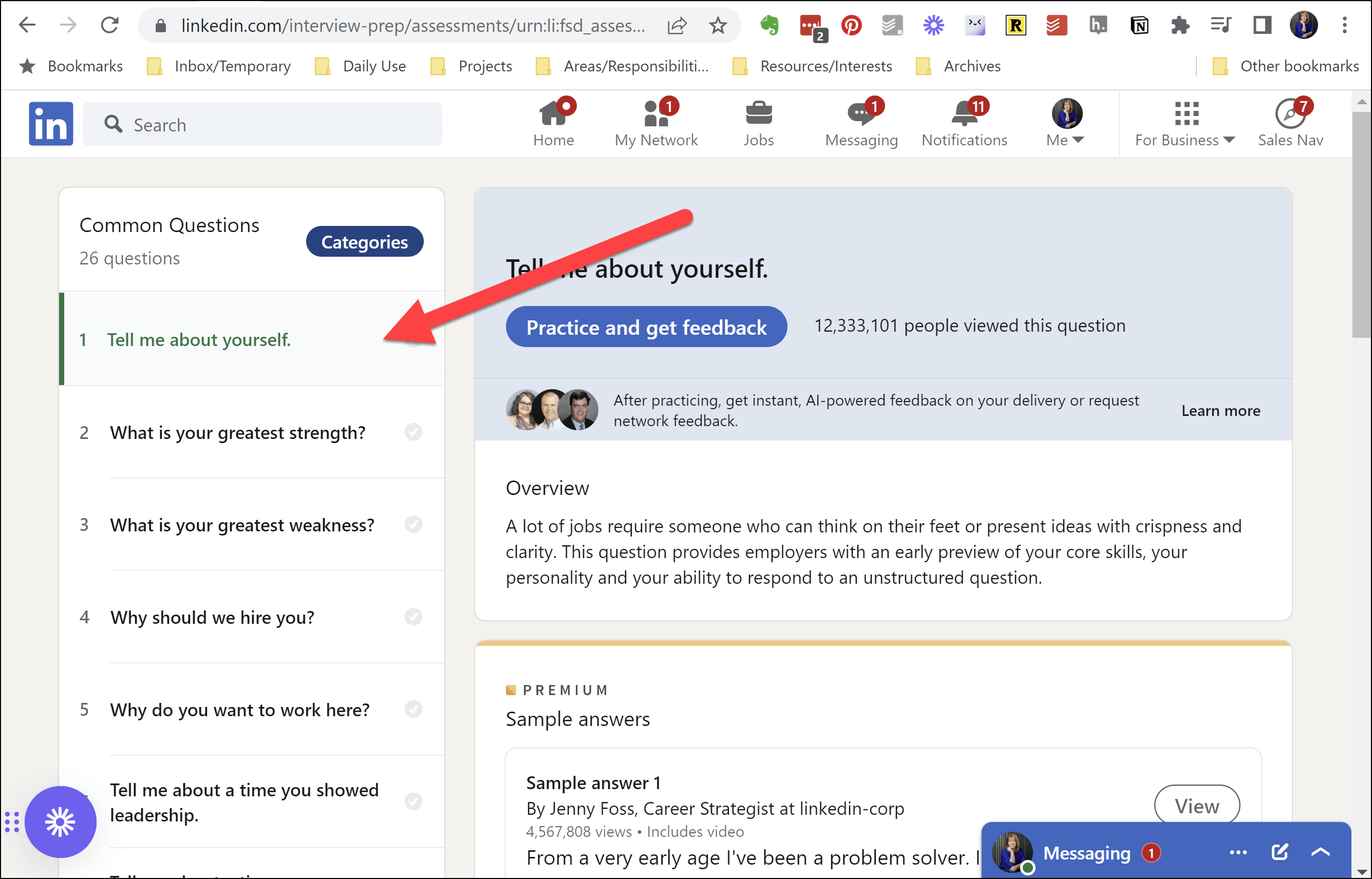
From there, select “Interview Prep,” which you can find under the dropdown menu on your mobile device and in the left-hand sidebar on your computer. This will lead you to the interview practice dashboard, where you can begin setting up your personalized practice session.

In addition to general questions, LinkedIn offers the option to select questions tailored to specific industries or job roles. This is particularly helpful for those seeking positions in specialized fields, as it provides a more targeted practice experience. To access these questions, click the “Categories” tab and select the industry or job role relevant to your search. This will generate a list of questions commonly asked in interviews for that particular sector.
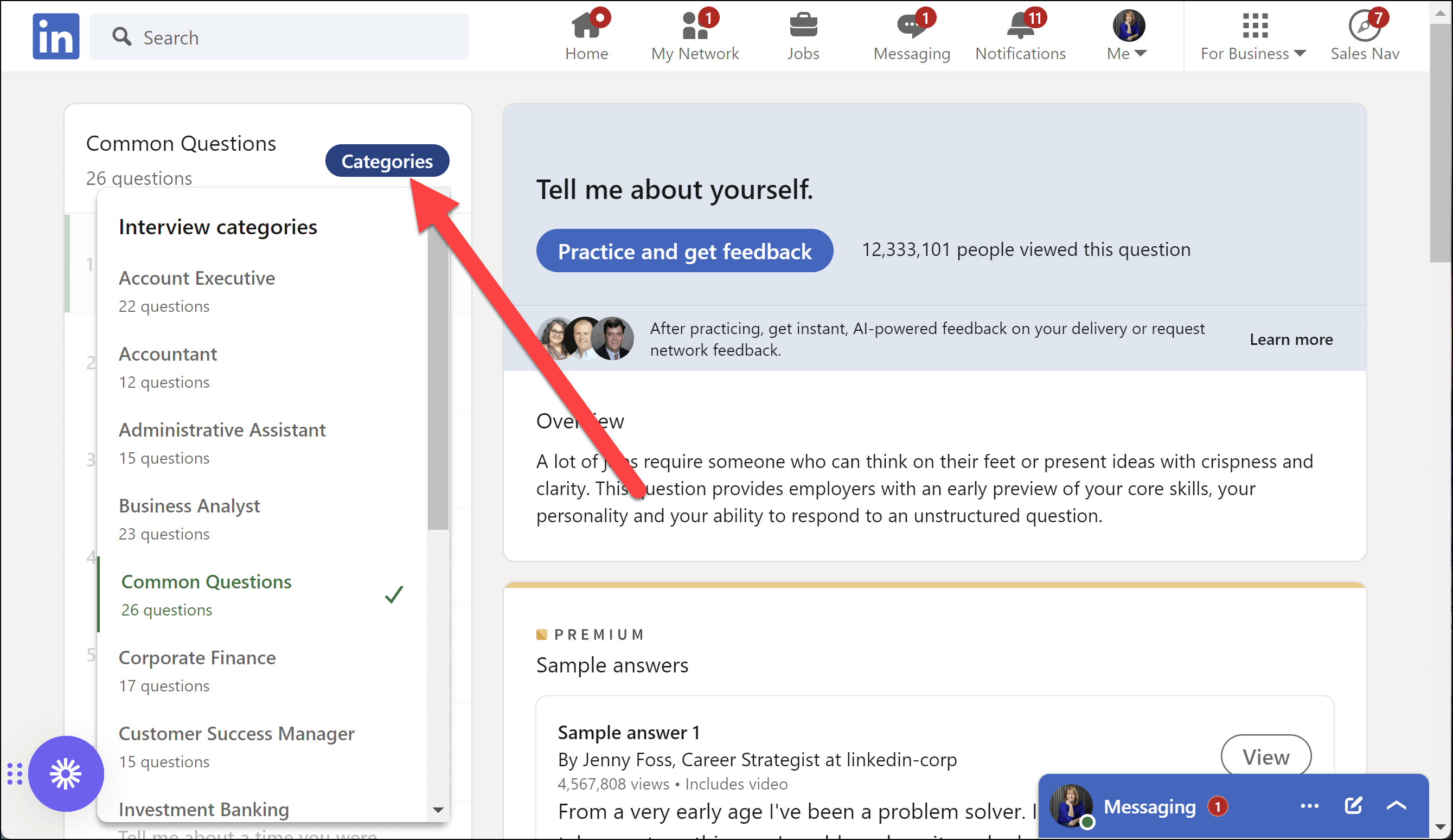
By customizing your practice session, you can ensure that you are well-prepared for the unique challenges and opportunities that your specific job interview may present.
Practicing Job Interview Responses
Once you have selected the questions you want to practice, LinkedIn allows you to record your responses using the platform’s audio or video recording options. You also have the option to write your response.
Writing your response can be particularly helpful when you are in the early stages of crafting your answer, as it allows you to organize your thoughts, identify key points you want to cover, and refine the overall structure of your response. Writing out your answer can also help you commit your response to memory, ensuring that your final answer is well-prepared and polished.
Recording Your Interview Response
As helpful as writing your responses might be, the ability to record your response and receive AI feedback on your delivery is even more valuable. By using the audio or video recording options, you can practice delivering your answers out loud and get a sense of how you might come across to an interviewer.
The AI-driven feedback on your delivery helps you understand not only the content of your answer but also the way you present it, including factors such as tone, pacing, and body language. Practicing your responses in this safe and controlled environment will help you gain confidence and improve your delivery.
To ensure accurate AI feedback, it is essential to practice in a quiet, distraction-free environment with minimal background noise.
When you are ready to record your response, click the “Record” button and speak or demonstrate your answer. Make sure to adjust your microphone and camera settings as needed for the best possible recording quality.
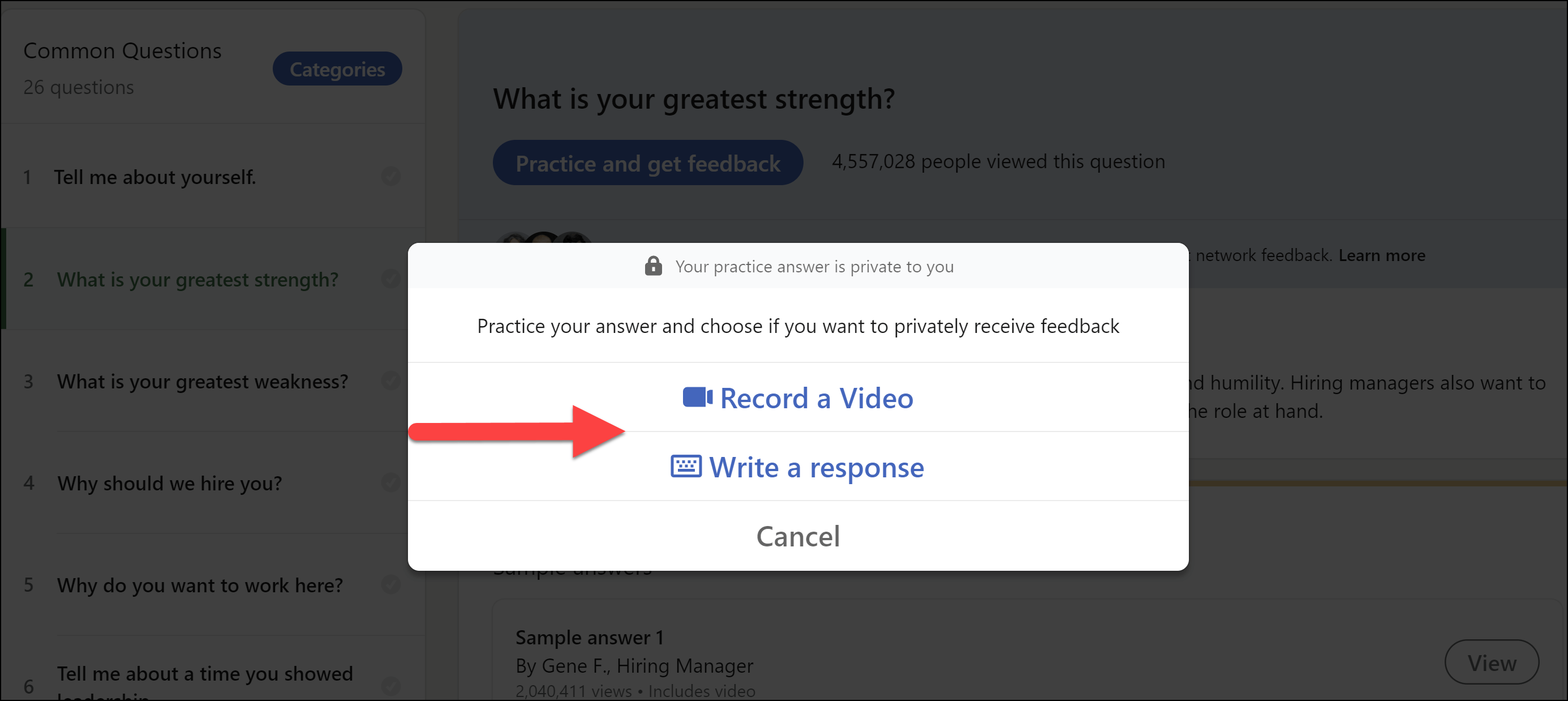
Reviewing Your Interview Response
After you have recorded your answer, LinkedIn provides the option to play it back for self-evaluation. By reviewing your response, you can identify areas where you may need improvement before receiving AI feedback. This self-assessment stage allows you to become more self-aware of your communication style, non-verbal cues, and overall demeanor during the interview.
Take note of any areas where your response could be stronger, more concise, or more engaging. Additionally, pay attention to your tone of voice, body language, and eye contact. These factors play a crucial role in how the interviewer perceives you and can significantly impact the success of your interview.
By combining the ability to craft responses in writing and then practice and record your delivery, you can devise a strong, well-structured response and then hone your delivery to ensure that your message is communicated effectively and leaves a lasting, positive impression on your interviewer.
Receiving AI-Generated Feedback on Your Interview Responses
Once you have recorded and reviewed your response, LinkedIn’s AI will evaluate your answer based on factors such as tone, clarity, confidence, and content.
The AI-generated feedback will provide you with specific insights and suggestions on how to improve your response. However, it is important to note that this feedback is meant to serve as a guideline, helping you identify areas that may need improvement rather than providing a definitive evaluation of your performance.
Improving Your Interview Responses
By carefully reviewing the AI-generated feedback, you can identify areas where you can enhance your interview answers.
For example, the AI might suggest that you focus on being more concise in your response, ensuring that you answer the question directly and succinctly.
Alternatively, the feedback may indicate that you need to work on speaking more confidently, which could involve adjusting your tone or practicing better eye contact. Use this feedback as a valuable resource to fine-tune your responses and address any potential weaknesses in your interview skills.
Tracking Progress as You Prepare for the Interview
LinkedIn’s interview prep feature also allows you to view your past practice sessions and feedback, enabling you to track your progress over time.
By comparing your previous responses and AI feedback, you can see your improvements and identify any persistent issues that may still need attention.
This progress-tracking functionality is a powerful tool for ensuring that your interview skills are continuously improving, increasing your chances of success in your job search.
LinkedIn’s AI-Powered Interview Practice in Action
LinkedIn’s AI-powered interview prep is a game-changer for job seekers. It provides a unique opportunity to practice interview skills in a low-pressure environment, receive personalized response feedback, and track progress over time. This feature is especially beneficial for those who are new to the job market or have not interviewed in a while, as it allows them to gain confidence and refine their skills before the actual interview. It can also be helpful to more seasoned professionals who may want to fine-tune their interview skills or prepare for a specific job opportunity.
Overcoming Nervousness
Sarah, a recent graduate, was searching for her first job in marketing. Despite her strong qualifications and enthusiasm for the industry, she found herself struggling during interviews due to nervousness. Sarah’s anxiety would cause her to stutter, lose her train of thought, and fail to effectively communicate her strengths to potential employers.
Determined to overcome her nerves and land her dream job, Sarah turned to LinkedIn’s interview practice feature for help. By selecting questions relevant to marketing positions, Sarah was able to focus her practice sessions on the types of questions she would likely encounter in her interviews. She began by writing out her answers, allowing her to refine her responses and become more familiar with the content. Then, she would record herself delivering her answers to simulate the interview environment.
The AI-generated feedback Sarah received was instrumental in her progress. The AI pointed out areas where she hesitated or stumbled over her words, as well as instances where her tone lacked confidence. By identifying these specific issues, Sarah could target her practice sessions and work on her delivery with greater precision.
Over time, Sarah’s confidence grew as she continued to practice her responses and implement the AI’s feedback. She became more comfortable speaking about her qualifications, experiences, and passion for marketing. Her improved interview skills were quickly noticed, and she was soon offered a marketing position at a company she had admired for years.
LinkedIn’s AI-powered interview practice feature played a critical role in helping Sarah overcome her nervousness and refine her interview skills. By providing targeted feedback and a platform for continuous improvement, Sarah was able to confidently showcase her strengths to potential employers and ultimately land her dream job.
Refining Communication Skills
John, a seasoned professional in the finance industry, was eager to advance his career by pursuing a management role. Although he possessed extensive experience and a deep understanding of his field, he often struggled to communicate his expertise clearly and concisely during interviews. This hindered his ability to demonstrate his leadership potential and left interviewers with the impression that he was not the right fit for the role.
Recognizing the need to refine his communication skills, John turned to LinkedIn’s interview practice feature. He started by selecting industry-specific questions and writing out his responses, focusing on organizing his thoughts and highlighting his most relevant accomplishments. After crafting well-structured answers, John moved on to recording his responses to gain a better understanding of his communication style and delivery.
The AI-generated feedback provided John with invaluable insights into his communication weaknesses. The AI highlighted instances where his responses were overly verbose, which made it difficult for the interviewer to grasp the key points he was trying to convey. The AI also pointed out moments where his tone seemed monotonous, making his answers less engaging.
Armed with this feedback, John worked diligently to improve his communication skills. He focused on delivering concise and impactful answers, ensuring that he clearly articulated his qualifications and experience. Additionally, John practiced modulating his tone and pacing to create a more engaging and dynamic delivery.
Over time, John’s communication skills improved dramatically. In his subsequent interviews, he was able to effectively demonstrate his leadership qualities and deep understanding of the finance industry. Soon enough, John was offered a management position at a prestigious financial firm. Thanks to LinkedIn’s AI-powered interview practice feature, John was able to identify and address his communication weaknesses, ultimately paving the way for his career advancement.
Preparing for Industry-Specific Interview Questions
Emma, a software engineer with a few years of experience, was looking to transition into the competitive field of cybersecurity. While she was confident in her technical abilities, she was concerned about her ability to answer industry-specific questions during interviews, as she knew cybersecurity interviews often included challenging technical questions and scenarios.
To better prepare herself for these interviews, Emma utilized LinkedIn’s interview practice feature, focusing on the industry-specific questions tailored to the cybersecurity field. She carefully reviewed the list of common questions and scenarios provided by LinkedIn and selected those most relevant to the roles she was applying for.
Emma started by writing out her responses, making sure she thoroughly addressed each aspect of the technical questions and scenarios. This process allowed her to identify gaps in her knowledge, prompting her to deepen her understanding of key cybersecurity concepts. Once she had crafted well-informed and comprehensive responses, Emma moved on to recording her answers, simulating the pressure of an actual interview.
The AI-generated feedback proved crucial in refining Emma’s responses. The AI helped her identify areas where her explanations were too technical or unclear, enabling her to adjust her answers to be more accessible to a non-technical audience. The AI also provided suggestions for improving her pacing and tone, ensuring her delivery was engaging and confident.
After multiple practice sessions and continuous refinement, Emma felt well-prepared and confident in her ability to tackle cybersecurity-specific questions. Her hard work paid off when she aced her interviews and received multiple job offers from top cybersecurity firms. By leveraging LinkedIn’s industry-specific interview questions and AI feedback, Emma was able to prepare effectively for her unique interview scenarios, ultimately helping her break into the competitive field of cybersecurity.
Final Thoughts on the Game-Changing Power of AI in Your Interview Preparation
LinkedIn’s AI-powered interview practice feature has proven to be an invaluable tool for job seekers looking to improve their interview skills and increase their chances of landing their dream job. By providing job hunters with a customizable practice experience, AI-generated feedback, and the ability to track progress over time, LinkedIn enables job seekers to hone their responses, build confidence, and effectively prepare for the unique challenges that interviews can present.
The case studies we explored demonstrate the diverse ways in which LinkedIn’s interview practice feature can benefit users, whether they are overcoming nervousness, refining communication skills, or preparing for industry-specific questions. By leveraging this powerful tool, job seekers can better showcase their strengths and qualifications to potential employers, ensuring they stand out from the competition and succeed in their job search.
In today’s competitive job market, utilizing every resource available to maximize your chances of success is essential. So don’t miss the opportunity to take advantage of LinkedIn’s AI-powered interview practice feature and elevate your interview skills to new heights. With consistent practice, targeted feedback, and determination, you, too, can make a lasting impression on your interviewer and land your dream job.





